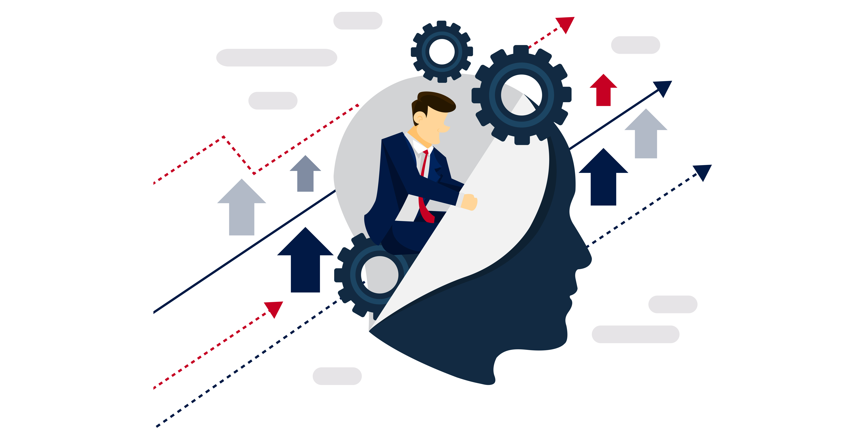Speed is the essence of our world. Patience is a virtue.
Let me elaborate. The relentless onslaught of connectivity – in the form emails, messaging apps and social media, forces us to snap react. The urgency to act often makes our decisions impulsive and tactless. Over the long-term, such time-pressured actions yield not-so-great results. The consequent failure affects our productivity and confidence.
The simplest way to break this cycle is by turning our approach on its head. Step back and think before you act. This is a strategy that I implement at work and in every arena of life. The simple act often puts me in a position of advantage. The underlying principle is encapsulated in this quote by Frank Partnoy, “if everyone else moves too quickly, we can win by going slow”.
There are multiple reasons for our choices to benefit from delay:
You can think through different perspectives and arrive at an objective decision.
Before arriving at any decisive action, I take a detached, ringside view of the situation. The exercise helps me in reviewing the options and consequences objectively. My experience is that the approach enables more successful outcomes. I find that this tactic is widely employed by successful people all around the world across varied fields.
Take the example of Michael Phelps, the world’s most decorated Olympian of all times. In an interview, his coach Bob Bowman said, “He’ll see [what he’s up against] sitting in the stands, and then he’ll see it in the water. And then he will go through scenarios – what if things, don’t go well?” Like if his suit rips or his goggles break. “And then he has this database, so that when he swims the race, he’s already programmed his nervous system to do one of those. And he’ll just pick the one that happens to come up. If everything is perfect, he’ll go with the perfect one; if he’s got to make a change, he’s already got it in there.”
Time and patience help you contemplate better.
Leaders are under constant pressure to make quick decisions and deliver results. But I’ve seen that immediate actions can also be incorrect. Observation and orientation are essential to ensure the correctness of our efforts. For instance, as an avid sports follower, I’ve noticed that professional tennis players wait a few extra milliseconds before swinging their racquets at the ball. Research reveals that they use the late-swinging technique to orient themselves to the speed and trajectory of the ball and strike more impactfully.
Let me share another example here. Air force personnel are trained to function in this manner through the ‘winding the clock’ strategy. In an emergency, pilots are trained to wind the clock as the first step of their response. According to psychologists working in the defence sector, the procedure increases the blood flow to the brain, helps the pilots to calm down and focus on the problem at hand. The pilots are then better positioned to garner a more coherent and logical response to the situation.
Reversing impulsive actions is painful and damaging.
On average, human beings have about 60,000 thoughts every day. We want to focus on multiple tasks simultaneously. This, in turn, leads to slower and shallower thinking, reduced creativity, increased anxiety and impulsive decision-making. Impulsive actions are often “poorly conceived, prematurely expressed, unduly risky, or inappropriate to the situation that often result in undesirable consequences.”
Impulsive business management may seem profitable in the short-term. But over the long term, the strategy can do more harm than good. Such behaviour derails or terminates opportunities for advancement. Hence, it is best avoided. Leaders who manage their emotions under pressure while maintaining a healthy sense of humour are more successful. They build stronger relationships, have more creative solutions to challenges and meet professional goals more effectively. I encourage leaders to train themselves and their teams to employ a rational and well-deliberated approach to decision-making at all times.
In conclusion, I’ll only say take a moment to think about the consequences of your actions. Your decision-making will be more productive, and your efforts will be more successful.











